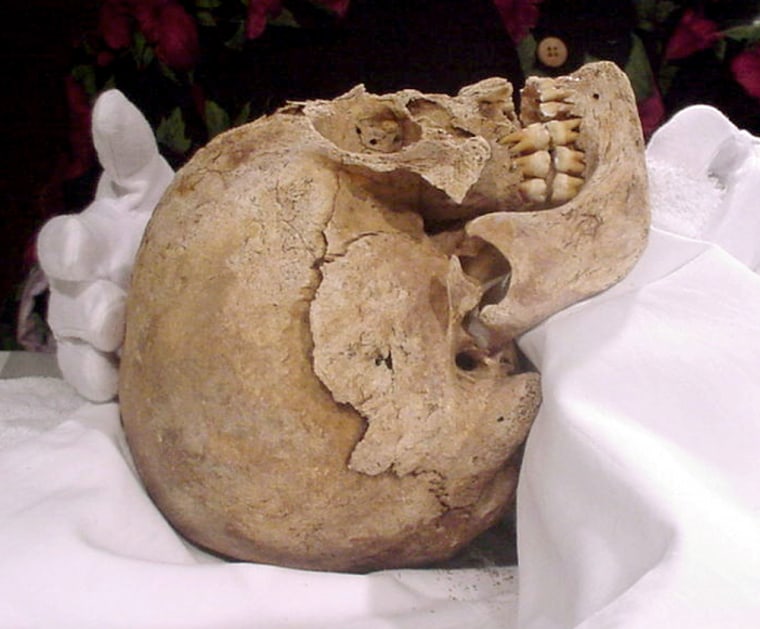The earliest confirmed autopsy in North America was conducted more than 400 years ago by French colonists desperate to determine what was killing them as they endured a rugged winter on St. Croix Island, scientists concluded.
A team of forensic anthropologists from the United States and Canada confirmed that the skull of a man buried on the island over the winter of 1604-05 showed evidence of having undergone an autopsy, scientists said.
Nearly half of the 79 settlers led by explorers Pierre Dugua and Samuel Champlain died over that winter from malnutrition and the harsh weather.
The skull in question was discovered during excavations by the National Park Service in June 2003. The top of the skull had been removed to expose the brain; the skull cap was replaced before the body was buried, the scientist said.
"This is the same procedure that forensic pathologists use to conduct autopsies today," said Thomas Crist from Utica College in upstate New York, who led the team of forensic anthropologists analyzing the remains.
The findings, announced by the National Park Service, will be the subject of a program on the Discovery Health Channel series "Skeleton Stories" on Nov. 10.
The findings fit with the writings of Champlain, who described a dire situation in his memoirs published in 1613. He wrote that his barber-surgeon was ordered to "open several of the men to determine the cause of their illness."
Dugua, a nobleman known as Sieur de Mons, chose the small island in the St. Croix River that separates what's now Maine and New Brunswick. The settlers cleared a site, planted gardens and erected dwellings including a kitchen, storehouse, blacksmith shop and chapel.
But the winter was harsh, with the first snow falling in October, not long after Champlain returned from a historic voyage to Mount Desert Island. Thirty-five of the settlers died and were buried on the island.
Scientists using modern techniques have concluded that the French settlers died from scurvy, which is caused by a lack of vitamin C.
A ship arrived in June with supplies. Dugua then moved the settlement to Nova Scotia at a spot Champlain named Port Royal.
The St. Croix settlement turned out to be short-lived but it gave the French credit for beating the English to establish a permanent presence in the New World.
The graves were originally excavated in 1969 by a team from Temple University. The remains were studied before being re-interred by the National Park Service after consultation with the French and Canadian governments.
It was during that process of reburial that the team members were at the site discussing Champlain's journal reference to autopsy, said Marcella Sorg, Maine state forensic anthropologist, who was part of the team.
Sorg said she looked down and noticed the skull with the autopsy cuts that apparently had been overlooked during previous excavations. "It was beautifully done, a very straight cut, and very accurate," she said.
There have been written references to earlier autopsies by Jacques Cartier in the 1500s in what's now Quebec, but there's no skeletal evidence, said Sorg, who works with the University of Maine's Margaret Chase Smith Center for Public Policy.
In addition to Sorg, Crist was assisted by his wife Molly Crist, also a professor at Utica College. The other team member was Robert Larocque, physical anthropologist from Universite Laval in Quebec.
St. Croix Island is protected by the National Park Service as part of Saint Croix Island International Historic Site.
Delegates from the United States, Canada and France gathered in 2004 to commemorate the 400th anniversary of the settlement.
